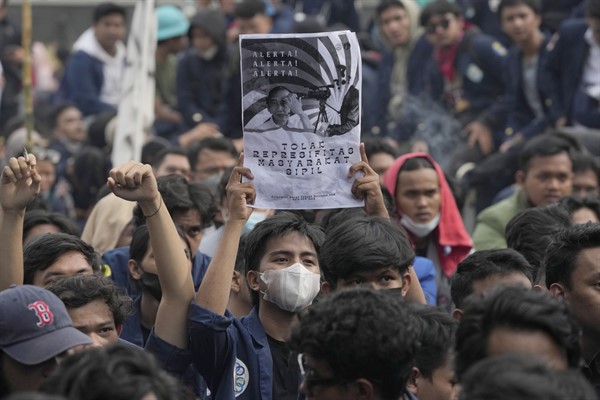Indonesian President Joko Widodo won the country’s presidential election in 2014 by presenting himself in part as a democratic reformer, a man of humble origins who would fight graft and curtail the self-dealing elite politics that dominate Jakarta. If at the start of Jokowi’s first term there was some hope that he would follow through on his lofty campaign promises, that all seems like a distant memory today. For most of his second term since being reelected in 2018, he has proven to be the opposite of a reformer, undermining democracy, advancing insider politics in which political dynasties are blossoming, cracking down on dissent and tolerance, and weakening anti-graft efforts instead.
Now, after Jokowi handled the first two years of the pandemic poorly, his closest advisers seem to be pushing a shadow campaign to postpone the presidential election scheduled for 2024, claiming that Jokowi needs more time to battle the pandemic. Though Jokowi has said he does not support the idea, his advisers continue to subtly push it. But any postponement would be extremely damaging to Indonesia’s democracy.
Jokowi has failed at reform on multiple levels. For one, though he long decried political dynasties that have dominated Indonesian politics and stymied new blood from entering the political arena, since taking office he has created his own political dynasty. With Jokowi’s backing, his oldest son, Gibran Rakabuming, has been elected mayor of Solo, the city where Jokowi got his start. Gibran is now being talked about as a candidate for mayor of Jakarta in the 2024 elections. That position can be a stepping-off point for the presidency because of the high national profile it enjoys, as Jokowi’s career trajectory—he served as Jakarta’s mayor before winning the 2014 presidential election—demonstrates. Meanwhile, Jokowi helped push for his son-in-law, Bobby Nasution, to win election as mayor of Medan, another important city, two years ago, despite Nasution being only 29 years old and inexperienced at the time.

